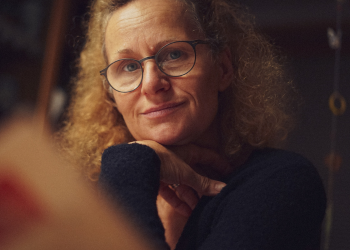I have been wondering for some time, how to perceive the unprecedented levels of global volatility, uncertainty, complexity and ambiguity (VUCA) as opportunities and catalysts for radical changes towards creating an innovation culture, where the spirit of innovation flourishes.
Some of my corporate clients are already keenly developing innovative strategies to enable them to quickly and creatively respond to a range of business dilemmas arising from the range of never before challenges. They know that they have to do this to deliver value and sustain relevance to their better educated and informed, globally savvy customers. At the same time maintaining a sustainable business and delivering stakeholder value and bottom-line results, in the digitized and connected ages through developing an innovation culture where the spirit of innovation flourishes.
The catchphrase, “re-invent, re-imagine, innovate, or die” seems to be ringing in their collective ears!
In fact, Gary Hammel, author of ‘The Future of Management’ and ‘Leading the Revolution’: states: “Never has it been a better time to be unorthodox, to be hungry, to be willing to change, to be willing to experiment and try new things. Organizations that can institutionalize that spirit will undoubtedly thrive in the years ahead.”
Cultivating the spirit of innovation
This suggests that it is time for senior executives, leaders, corporate consultants, and executive and leadership coaches to also develop responses for re-inventing or re-imagining their own games towards creating an innovation culture, where the spirit of innovation flourishes. This allows them to better serve the needs of their clients, many of whom appear to be drowning in their own uncertainty, instability, chaos, and complexity. To be the change and create the spirit and conditions for be-ing unorthodox, hungry and experimental, to lead and enable their clients to institutionalize the innovative spirit that Hammel suggests.
Cultivating an innovation culture
To re-invent, re-imagine, and institutionalize creating an innovation culture, where the spirit of innovation flourishes, certain conditions and capabilities need to be created and nurtured:
- Be intentionally disruptive
Innovation tends to be a result of a disruptive process that establishes the need for adaptation, from which an innovative threshold can be reached. In the organisational context, for any change or innovation process to be successful, it requires deep intrinsic motivators and a necessity or survival factor to drive it. If this is not strong and explicit, people’s survival anxiety will kick in and overwhelm them. This will inhibit it from happening because they will be fearful of it, and then resist it.
For the spirit of innovation to be seeded, in the first place, it is important to create a safe and intentional disruption that resonates with people’s values and triggers their intrinsic motivators in nondefensive and engaging ways. This enables people to engage and enroll from a point of safety in the change or innovation process. This is done best within a ‘safe space within a set of conditions described as psychological safety.
When leaders, coaches, and consultants accept, work with, respect, and build this spirit into any innovation effort, whether it is a one on one executive coaching, team, leadership, or a corporate learning program, it is more likely to be successful and enduring as an innovation culture.
- Be present to the whole
Innovation emerges from the whole, this suggests that there is an opportunity to teach people how to see and learn from the whole system. To know how to enhance and evolve iterations until they can perceive the possibility of a whole new system functioning. This is the basis of the creative ideation process, from which re-invention, re-imagining, and innovation emerge.
In the war for our attention, we have the opportunity to teach and coach people or re-educate them to be fully present. To spark their curiosity and facilitate detachment, to give them permission to imagine and wonder about ‘what could be’, as opposed to just living with, and accepting ‘what is’.
The key is the development of real skills in generative questioning, listening and debating to uncover new ways of ‘seeing’ the world. In ways that enable people to understand the generative nature of their business dilemmas and to engage in solving them in unexpected and imaginative ways.
- Create inflection points
Generative debates trigger inflection points or right-hand turns that propel a business or a practice to new heights.
To encourage them to be both analytical and intuitive simultaneously so that they can discern what the core problems or dilemmas are, and what constitutes the right action for moving forwards in providing innovative solutions and services to customers.
- Be an innovative thinker
Innovation depends on the embodiment of specific growth and innovation mindsets that can be embodied once old beliefs and judgements have been let go of. These create the space for sensing and perceiving possibilities and opportunities that also empower people in the ideation and innovative prototype processes.
It is important to acknowledge that when people are required to learn something new, they usually experience some kind of learning anxiety and temporary incompetence. When leaders, consultants, and coaches accept, respect, and build this factor into an innovation effort, it is more likely to succeed and be sustained.
People require time for retreat and reflection, practice, and repetition to sustain, apply to integrate, and assimilate the new ways of thinking into concrete business practices and habits.
- Be generative
Experimentation is a huge factor in innovation, be willing to allow people to fail, take intelligent and calculated risks, and experiment with new ideas, products, and services and with new ways of defining and solving problems.
In regards to mistakes and failures, adopt’ trial and error’ as a means of making errors to trial ideas not to put people on trial!
People will be far more adventurous and audacious if they know that they will not be punished in some way for mistakes and failures. Using imaginative business simulations, experiential learning, and gamified learning processes to engage people’s passion and build their confidence and commitment towards playing in the unexpected and the unknown.
- Be courageous and persistent
Prototyping is one of the least understood and most important parts of the innovation process. It requires a very clear intention to create the focussed and disciplined testing ground that will ultimately crystallize and enact the vision for innovation. This will only emerge from a multitude of failed tests.
People often give up during this testing phase, they need to be encouraged, supported acknowledged, and valued in whatever it takes to keep them on board.
- Be resourceful around diversity and difference
An unorthodox, or deviant mindset, is one that looks for possibilities and successes stories that deviate from the norm, make the effort to nourish and nurture the renegades, and the unique gifts they bring to the organisation.
Our global world is full of opportunities for maximising the cultural diversity that exists within most organisations, create a flexible working environment to allow those who value the process, order and structure and loose enough, for those who don’t.
The key is to give people the autonomy and ‘freedom to operate’ in the manner that works best for them. Promote generative listening, questioning, and debate to create a deep sense of camaraderie and loyalty as innovation is a social activity and a collaborative team sport.
- Be disciplined and resilient:
Rather than becoming slavish to existing processes, allow people the opportunity to challenge current processes and habitual ways of doing things within an innovation culture.
Create clear boundaries around what processes can be considered ‘loose’ and be willing to re-invent them, whilst maintaining a ‘tight’ and disciplined core of fundamental processes that remains true to the vision, and towards creating an innovation culture, where the spirit of innovation flourishes.
Finally, creating an innovation culture, where the spirit of innovation flourishes, requires developing disciplined processes and a supportive business eco-system.
Where all of the pieces and parts work collaboratively and harmoniously, enables the business to be adaptive, innovative, sustainable, and successful in an uncertain and unstable world through a culture of innovation.
At ImagineNation™ we provide innovation coaching, education and culture consulting to help businesses achieve their innovation goals. Because we have done most of the learning and actioning of new hybrid mindsets, behaviors and skill-sets already, we can help your businesses also do this by opening people up to their innovation potential.
Contact us now at janet@imaginenation.com.au to find out how we can partner with you to learn, adapt and grow your business in the digital age.











